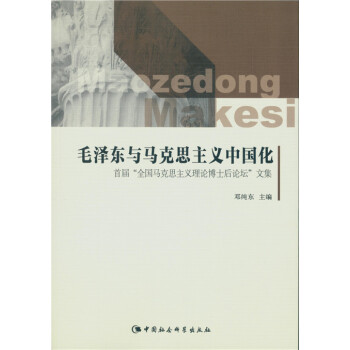具体描述
内容简介
《军事学一级学科简介和博士、硕士学位基本要求》为中英文对照版本,每个版本分两部分,分别为军事学一级学科简介及其一级学科博士、硕士学位基本要求。《学科简介》对军事学10个一级学科的概况、内涵、范围和培养目标等进行界定和规范,《基本要求》根据《中国人民共和国学位条例》及其暂行实施办法有关规定,结合军事学学科特点制定,是军事学研究生学位授予应该达到的基本标准。 目录
1101 军事思想及军事历史
军事思想及军事历史学科简介
军事思想及军事历史博士、硕士学位基本要求
1102 战略学
战略学学科简介
战略学博士、硕士学位基本要求
1103 战役学
战役学学科简介
战役学博士、硕士学位基本要求
1104 战术学
战术学学科简介
战术学博士、硕士学位基本要求
1105 军队指挥学
军队指挥学学科简介
军队指挥学博士、硕士学位基本要求
1106 军事管理学
军事管理学学科简介
军事管理学博士、硕士学位基本要求
1107 军队政治工作学
军队政治工作学学科简介
军队政治工作学博士、硕士学位基本要求
1108 军事后勤学
军事后勤学学科简介
军事后勤学博士、硕士学位基本要求
1109 军事装备学
军事装备学学科简介
军事装备学博士、硕士学位基本要求
1110 军事训练学
军事训练学学科简介
军事训练学博士、硕士学位基本要求 精彩书摘
《军事学一级学科简介和博士、硕士学位基本要求(中英文版)》:
2.学术道德
具有高尚的职业道德,有强烈的爱国主义精神、社会责任感,忠诚党的事业,献身军事理论研究。树立科学的科研价值观,具有独立、自主的学术研究精神,能够实事求是地调查、研究问题;能够正确认识和处理继承与发展、借鉴与创新、成名成家与无私奉献的关系。具有较高的个人学术品德修养,恪守学术道德规范,遵守知识产权法,不得侵占、抄袭、剽窃他人学术成果,不得篡改、伪造研究数据,不得由他人代写文章,不得在发表学术论文时未经同意使用他人署名,不得以不正当手段影响研究成果鉴定、论文评阅、论文答辩和考试成绩,不得篡改、伪造导师或专家推荐信及其评定或审批意见。
三、获本学科硕士学位应具备的基本学术能力
1.获取知识能力
具有较强的自学能力,能综合运用各种现代科学技术方法和手段,跟踪研究军事后勤学学科国内外发展情况,了解军事后勤学学科学术前沿动态,获取军事后勤学学科专业知识、相关信息与基础数据。能够综合运用调查研究、实际考察、文献信息检索、模拟仿真试验、逻辑推理等方法探究知识的来源。掌握科学的思维方法和学习方法,将零散知识进行综合与梳理。
2.科学研究能力
能了解军事后勤学发展的现状与前沿,发现并提出军事后勤领域有价值的研究方向与问题。能运用马克思主义的立场观点方法、科学研究的一般方法和军事后勤理论研究的特殊方法,就军事后勤学某一领域的重点难点问题开展研究,并取得高质量的研究成果。能够参与课题总体设计、组织协调和项目管理。
3.实践能力,能够把军事后勤理论与实践较好地结合起来,通过军事后勤实践活动充实军事后勤理论,提出具有可操作性的对策建议和措施。具有较强的协作精神和团队意识,善于与他人合作,参与军事后勤建设与保障规划、计划的评估论证与理论研究工作。
4.学术交流能力
具有较强的中文写作和口头表达能力,能够用中文准确地表达学术思想、展示学术成果,进行学术交流。较熟练地掌握一门外国语,能阅读军事后勤学专业的外文资料,具有一定的外语写作能力和口语表达能力。
5.其他能力
具备针对军事后勤现实问题进行调查研究,撰写咨询报告,参与军事后勤研究等实践活动能力。具备在相应机关工作的组织计划和协调工作能力。
四、学位论文基本要求
1.规范性要求
硕士学位论文必须是一篇(或一组相关论文组成的一篇)系统完整、有较高质量的学术论文,一般3万字左右。学位论文要结构合理,论点鲜明,论据可靠,论证充分。一是要素齐全,主要包括:封面、版权页、中外文摘要、目录、绪论(或前言、导论)、正文、结论、图表索引、参考文献、主要学术成果、附录等。二是文体统一,论文的格式和行文,应前后一致,公式、图表等应编号并与行文一致。三是表述规范,论文要前后呼应,紧扣主题,概念表述要清晰、明确,观点要准确,论据要充分;所使用的时间、数字、文字都要做到准确无误,所使用的术语、计量单位、制图、制表、公式规范、缩略词和符号等必须遵循国家和军队颁布的标准,如无标准可循,应符合学位授予单位所公布的规定。四是资料丰富,参考文献的数量一般不少于50部(篇),其中近5年内的文献占一半以上,权威文献和国外文献占一定比例。论文应有相当数量的引文注释,凡引用他人的科研成果必须明确注明,引用或引证的文献和原著准确,借鉴合作者的观点和研究成果须加附注。
……
军事学一级学科简介与学位基本要求(中英文对照) 引言 本指南旨在为有志于投身军事科学研究与实践的学子们提供一份全面、深入的介绍。军事学作为一门涵盖广泛、内涵丰富的学科,其研究领域涉及国家安全、国防建设、军事战略、战役战术、军事思想、军事高科技、军事后勤保障、军事心理学等多个关键维度。理解军事学的内在逻辑与发展脉络,掌握其核心理论与方法,是培养高素质军事人才、推动国防现代化建设的基石。 本指南分为两大部分:军事学一级学科简介和博士、硕士学位基本要求。前者将系统梳理军事学一级学科的构成、学科发展历史、研究前沿及未来发展趋势,帮助读者建立对军事学整体的宏观认识。后者则详细阐述攻读军事学博士、硕士学位所应具备的学术素养、知识结构、研究能力以及毕业所需的各项标准,为广大学子规划学术生涯提供明确指引。 为了更好地服务于国际化学术交流与合作,本指南提供中英文对照版本,力求语言的准确性与表达的严谨性,以期消除语言障碍,促进不同国家和地区的军事学研究者之间的深度沟通与理解。 第一部分:军事学一级学科简介 1. 学科的界定与范畴 军事学,英文表述为 “Military Sciences”,是一个高度综合性、交叉性的学科门类。其核心在于研究战争的发生、发展、消亡规律,探讨如何有效地组织、运用和发展国家军事力量,以维护国家主权、安全和发展利益。军事学不仅仅是对军事技能的单纯传授,更重要的是对军事现象的深刻洞察,对军事问题的科学分析,以及对未来军事发展的战略预见。 军事学一级学科涵盖的范围极为广泛,通常包括但不限于以下二级学科或研究方向: 军事思想史与理论: 追溯古今中外军事思想的演变,研究马克思主义军事观、战争观、军队建设等核心理论,并探讨其在不同历史时期和现实条件下的应用价值。 军事战略学: 研究国家、联盟或国际组织在特定历史条件下,为实现其战略目标而制定的军事方针、战略原则、战略部署和战略指导。 战争学/战役学/战术学: 深入研究战争的规模、性质、作战样式、作战空间及作战保障等,以及在不同作战背景下,军队如何组织、指挥和实施作战行动的理论与实践。 军事后勤与装备学: 关注军队的物质保障、装备的研制、采购、维修、管理和使用,以及如何建立高效、可持续的后勤支援体系。 军事管理学: 研究军队的组织结构、人事管理、训练管理、信息管理、财务管理等,以提高军队的整体运行效率和战斗力。 军事高技术与信息化战争: 探索新军事革命背景下的高技术装备、信息技术、人工智能、网络空间等对战争形态、作战方式及军事理论的深刻影响。 军事心理学: 研究军事环境中个体和群体的心理现象、心理规律及其应用,包括战场心理、领导心理、团队心理、士兵心理健康等。 国防经济与安全: 关注国防建设的经济投入、资源配置、经济安全以及国防经济与国家整体经济的相互关系。 国际军事合作与安全: 研究国际军事关系、军备控制、军事外交、区域安全合作等,以及如何通过多边与双边合作维护地区和全球安全。 军事历史与文化: 梳理和研究中国及世界军事史上的重大事件、人物、战役,以及军事文化对社会和历史的影响。 2. 学科发展历程与演进 军事学作为一门实践性极强的学科,其发展与人类战争的历史紧密相连。从古代兵书(如《孙子兵法》)的智慧萌芽,到近代科学技术催生出的“科学战争”理念,再到现代信息技术革命引发的“信息化战争”新形态,军事学始终在实践的检验中不断丰富、发展和创新。 古代军事思想的奠基: 早期军事思想家们通过总结战争经验,提出了关于战略、战术、指挥、后勤等方面的朴素认识,如中国古代的《孙子兵法》、《吴子兵法》,以及西方军事著作,都对后世产生了深远影响。 近代军事理论的体系化: 工业革命和民族国家的兴起,使得军事理论逐渐走向科学化和体系化。克劳塞维茨的《战争论》将战争视为政治的延续,奠定了近代战略学的理论基础。 两次世界大战与军事革新: 两次世界大战极大地推动了军事技术的飞速发展和军事理论的深刻变革,如闪电战、空降作战、大规模联合作战等战术战法的出现。 冷战时期的战略博弈: 在核武器出现后,战略学进入了核战略、威慑战略的新阶段,同时也催生了相关领域的军事理论研究。 后冷战时代与新军事革命: 随着全球化进程的加速和信息技术的广泛应用,军事学进入了新的发展时期。信息化战争、非对称战争、认知战、网络战等成为研究热点,对军事理论提出了新的挑战。 3. 学科研究前沿与发展趋势 当前,军事学研究正呈现出以下几个主要前沿方向和发展趋势: 智能化与无人化作战: 人工智能、大数据、自主机器人等技术在军事领域的应用,正在重塑作战平台、指挥控制和战场感知方式,引发对智能战争、无人战争理论的深入探讨。 信息技术与网络空间安全: 网络攻防、信息对抗、数据主权成为国家安全与军事斗争的新维度,相关理论研究日益受到重视。 体系对抗与联合作战: 现代战争强调多域协同、体系融合,如何构建和运用一体化联合作战体系,以及如何进行体系对抗,是当前军事战略与战役指挥研究的重点。 战略博弈与大国竞争: 在复杂的地缘政治环境中,大国战略博弈、新型安全挑战、全球治理体系的重塑等,都对军事战略的制定和军事力量的运用提出了新的要求。 认知领域作战: 关注通过影响对手的思想、情感和意志来达成战略目标的作战方式,包括心理战、宣传战、舆论战等,其理论与实践日益受到重视。 军事伦理与法律: 随着军事技术的发展和军事行动的复杂化,军事伦理、战争法、人道主义援助等方面的研究也愈发显得重要。 绿色军事与可持续发展: 关注军事活动对环境的影响,以及如何实现军事建设与环境保护的可持续发展。 第二部分:博士、硕士学位基本要求 攻读军事学博士、硕士学位,旨在培养具有深厚军事理论功底、敏锐战略眼光、扎实研究能力和创新精神的高级军事及学术人才。各级学位授予单位会根据国家相关规定和学科特点,制定具体的学位授予标准,但总体而言,以下基本要求是普遍适用的。 1. 博士学位基本要求 1.1 学术素养与知识结构: 扎实的理论基础: 深入掌握军事学一级学科及其所选二级学科的核心理论、基本原理、研究方法和最新发展动态。对马克思主义军事理论、战略学、战争学等基础理论有深刻理解。 广阔的知识视野: 具备历史学、哲学、政治学、经济学、社会学、法学、信息科学、工程学等相关学科的基础知识,能够运用跨学科的视角分析军事问题。 外语能力: 熟练掌握一门或两门外国语,能够阅读本学科的专业文献,并具备一定的学术交流能力。 1.2 研究能力与创新精神: 独立研究能力: 能够独立自主地进行科学研究,选题具有理论意义和(或)现实意义,研究方法科学严谨,结论可靠。 创新性贡献: 在军事学某一领域能够提出具有独创性的理论观点、研究方法或解决方案,取得突破性研究成果,在国内外学术界产生积极影响。 学术规范与道德: 严格遵守学术道德规范,具备良好的学术品德,能够独立完成高水平的学术论文,并在国内外高水平学术期刊上发表。 博士学位论文: 博士学位论文应体现出原创性、系统性、深入性,能够代表作者在本学科领域的最高学术水平。论文的研究成果应具有重要的理论价值或实践指导意义。 1.3 实践与应用能力: 分析与解决复杂军事问题的能力: 能够运用所学知识和研究方法,分析和解决国家安全、国防建设、军事斗争中的复杂、重大学术问题或实际问题。 学术交流与表达能力: 能够清晰、准确地用中文和外文进行学术报告、学术演讲,有效参与学术研讨,并在学术会议上展示研究成果。 1.4 学位论文与答辩: 高质量的博士学位论文: 论文内容充实,论证严谨,逻辑清晰,文字精炼。需经同行专家评审通过,并由答辩委员会成员进行充分质询和评审。 通过博士学位论文答辩: 答辩委员会认为申请人已较好地掌握了本学科的知识体系,具备了独立从事研究工作的能力,其学位论文达到了博士学位的要求。 2. 硕士学位基本要求 2.1 学术素养与知识结构: 扎实的专业基础: 熟悉军事学一级学科及其所选二级学科的基础理论、基本概念和研究方法。对本学科的主要学术观点和发展前沿有一定了解。 初步的跨学科认识: 对与军事学相关的其他学科有初步了解,能够初步运用跨学科的视角分析军事问题。 外语能力: 具备一定的外语阅读能力,能够阅读本专业相关的外文文献。 2.2 研究能力与学术训练: 初步的独立研究能力: 能够在导师指导下,参与科研项目,完成一定的研究任务。能够对军事学某一具体问题进行初步的调查研究和分析。 规范的学术训练: 掌握基本的学术研究方法和写作规范,能够独立撰写符合学术要求的学术论文。 学术报告与研讨: 能够参加学术报告和研讨会,初步理解和运用学术交流的方式。 2.3 实践与应用能力: 分析与解决具体军事问题的能力: 能够运用所学知识,分析和解决军事领域中的具体、实际问题,具备一定的军事指挥、管理或技术应用能力。 信息搜集与处理能力: 能够熟练利用各种信息资源,搜集、整理和分析与研究课题相关的信息。 2.4 学位论文与答辩: 符合要求的硕士学位论文: 论文应具备一定的学术价值或应用价值,能够体现作者对所研究课题的理解和分析能力,结构完整,论证合理。需经同行专家评审。 通过硕士学位论文答辩: 答辩委员会认为申请人已掌握了本学科的基本知识和研究方法,具备了一定的研究能力,其学位论文达到了硕士学位的要求。 结语 军事学研究是一项既具有深刻理论内涵,又承载着国家安全使命的崇高事业。无论是追求博士学位的深度探索,还是硕士学位的扎实训练,都要求学习者保持严谨的治学态度、开放的学术视野和坚定的探索精神。本指南的初衷是为有志于在军事学领域深造的学子们提供一个清晰的指引,帮助大家更好地理解学科的魅力,明确前进的方向。希望这份指南能成为您学术旅程中的一份有益参考。 --- Introduction and Basic Requirements For the Doctor's and Master's Degrees of First-Grade Disciplines of Military Sciences Introduction This guide is designed to provide a comprehensive and in-depth introduction for students aspiring to engage in the research and practice of military sciences. Military Sciences, as a discipline of broad scope and rich content, encompasses critical dimensions such as national security, defense construction, military strategy, campaign and tactical operations, military thought, military high technology, military logistics and support, and military psychology. Understanding the inherent logic and developmental trajectory of military sciences, and mastering its core theories and methodologies, are foundational to cultivating high-caliber military talent and advancing national defense modernization. This guide is divided into two main sections: An Introduction to the First-Grade Discipline of Military Sciences and Basic Requirements for Doctor's and Master's Degrees. The former systematically reviews the composition of the first-grade discipline of Military Sciences, its historical development, research frontiers, and future trends, aiming to provide readers with a macroscopic understanding of the discipline as a whole. The latter elaborates in detail the academic literacy, knowledge structure, research capabilities, and graduation criteria required for pursuing doctoral and master's degrees in Military Sciences, offering clear guidance for students planning their academic careers. To better facilitate international academic exchange and cooperation, this guide provides bilingual (Chinese and English) versions, striving for accuracy in language and rigor in expression, with the aim of removing language barriers and fostering in-depth communication and understanding among military science researchers from different countries and regions. Part One: An Introduction to the First-Grade Discipline of Military Sciences 1. Definition and Scope of the Discipline Military Sciences, expressed in English as "Military Sciences," is a highly integrated and interdisciplinary field of study. Its core lies in the research of the laws governing the occurrence, development, and cessation of war, and in exploring how to effectively organize, utilize, and develop national military power to safeguard national sovereignty, security, and development interests. Military Sciences is not merely the simple transmission of military skills, but more importantly, it involves profound insights into military phenomena, scientific analysis of military issues, and strategic foresight into future military developments. The first-grade discipline of Military Sciences covers a wide range of areas, typically including, but not limited to, the following sub-disciplines or research directions: History and Theory of Military Thought: Tracing the evolution of military thought throughout history and across different cultures, researching core theories such as Marxist views on military affairs, war, and army building, and exploring their applicability in different historical periods and current conditions. Military Strategy: Researching the military policies, strategic principles, strategic deployments, and strategic guidance formulated by nations, alliances, or international organizations to achieve their strategic objectives under specific historical circumstances. Warfare Studies/Campaign Studies/Tactical Studies: In-depth research into the scale, nature, operational styles, operational spaces, and operational support of warfare, as well as the theories and practices of how military forces organize, command, and conduct operations in different combat contexts. Military Logistics and Equipment Studies: Focusing on the material support of the military, the research, procurement, maintenance, management, and utilization of equipment, and the establishment of efficient and sustainable logistics support systems. Military Management: Researching the organizational structure, personnel management, training management, information management, financial management, etc., of the military to improve its overall operational efficiency and combat effectiveness. Military High Technology and Informationized Warfare: Exploring the profound impact of high-tech equipment, information technology, artificial intelligence, cyberspace, etc., on the forms of warfare, operational methods, and military theories in the context of the new military revolution. Military Psychology: Researching psychological phenomena and laws in military environments, including battlefield psychology, leadership psychology, team psychology, and soldier mental health, and their applications. Defense Economics and Security: Focusing on the economic investment in defense construction, resource allocation, economic security, and the interrelationship between defense economics and the national economy as a whole. International Military Cooperation and Security: Researching international military relations, arms control, military diplomacy, regional security cooperation, and how to maintain regional and global security through multilateral and bilateral cooperation. Military History and Culture: Reviewing and researching major events, figures, and campaigns in Chinese and world military history, as well as the influence of military culture on society and history. 2. Historical Development and Evolution of the Discipline As a discipline with strong practical implications, Military Sciences has developed in close conjunction with the history of human warfare. From the nascent wisdom of ancient military treatises (such as "The Art of War") to the "scientific warfare" concept spurred by modern science and technology, and further to the new form of "informationized warfare" triggered by the information technology revolution, Military Sciences has continuously enriched, developed, and innovated through the test of practice. Foundations of Ancient Military Thought: Early military thinkers summarized wartime experiences and proposed rudimentary understandings of strategy, tactics, command, and logistics. For instance, ancient Chinese works like "The Art of War" and "The Book of Wu Zi," along with Western military writings, profoundly influenced later generations. Systematization of Modern Military Theory: The Industrial Revolution and the rise of nation-states led to the scientific and systematic development of military theory. Carl von Clausewitz's "On War" defined war as a continuation of politics, laying the theoretical foundation for modern strategic studies. World Wars I and II and Military Innovation: The two World Wars greatly propelled the rapid advancement of military technology and profound changes in military theory, leading to the emergence of tactics and operational methods such as blitzkrieg, airborne operations, and large-scale joint operations. Strategic Rivalry during the Cold War: Following the advent of nuclear weapons, strategic studies entered a new phase of nuclear strategy and deterrence strategy, concurrently fostering theoretical research in related fields. Post-Cold War Era and the Revolution in Military Affairs: With the acceleration of globalization and the widespread application of information technology, Military Sciences entered a new phase of development. Informationized warfare, asymmetric warfare, cognitive warfare, and cyber warfare have become research hotspots, posing new challenges to military theory. 3. Research Frontiers and Development Trends of the Discipline Currently, research in Military Sciences is exhibiting the following major frontier directions and development trends: Intelligent and Unmanned Warfare: The application of artificial intelligence, big data, and autonomous robotics in the military is reshaping operational platforms, command and control, and battlefield perception methods, prompting in-depth discussions on theories of intelligent and unmanned warfare. Information Technology and Cyberspace Security: Cyber offense and defense, information confrontation, and data sovereignty have become new dimensions of national security and military struggle, with relevant theoretical research receiving increasing attention. System Confrontation and Joint Operations: Modern warfare emphasizes multi-domain synergy and system integration. How to build and utilize integrated joint operational systems and how to conduct system confrontation are key areas of current military strategy and operational command research. Strategic Rivalry and Great Power Competition: In a complex geopolitical environment, strategic rivalry among major powers, new security challenges, and the reshaping of global governance systems place new demands on the formulation of military strategy and the deployment of military force. Cognitive Domain Operations: This focuses on operational methods aimed at achieving strategic objectives by influencing the adversary's thoughts, emotions, and will, including psychological warfare, propaganda warfare, and public opinion warfare. Its theory and practice are increasingly receiving attention. Military Ethics and Law: With the advancement of military technology and the increasing complexity of military operations, research in military ethics, laws of war, and humanitarian aid is becoming ever more important. Green Military Affairs and Sustainable Development: This area focuses on the impact of military activities on the environment and how to achieve sustainable development in military construction and environmental protection. Part Two: Basic Requirements for Doctor's and Master's Degrees Pursuing doctoral and master's degrees in Military Sciences aims to cultivate advanced military and academic talent with profound theoretical knowledge, keen strategic vision, solid research capabilities, and innovative spirit. Each degree-granting institution will formulate specific degree conferral standards in accordance with relevant national regulations and disciplinary characteristics. However, the following basic requirements are generally applicable. 1. Basic Requirements for a Doctoral Degree 1.1 Academic Literacy and Knowledge Structure: Solid Theoretical Foundation: Deep mastery of the core theories, fundamental principles, research methodologies, and latest developments in the first-grade discipline of Military Sciences and its chosen sub-disciplines. Profound understanding of foundational theories such as Marxist military theory, strategic studies, and warfare studies. Broad Knowledge Horizon: Possess foundational knowledge in related disciplines such as history, philosophy, political science, economics, sociology, law, information science, and engineering, enabling the analysis of military issues from an interdisciplinary perspective. Foreign Language Proficiency: Proficiency in one or two foreign languages, enabling the reading of specialized literature in the field and possessing a certain level of academic communication ability. 1.2 Research Capability and Innovative Spirit: Independent Research Ability: The ability to conduct scientific research independently and autonomously, with topics of theoretical and/or practical significance, employing rigorous and scientific research methods, and producing reliable conclusions. Innovative Contribution: The capacity to propose original theoretical viewpoints, research methodologies, or solutions in a specific area of Military Sciences, achieving breakthrough research results that have a positive impact on the academic community at home and abroad. Academic Norms and Ethics: Strict adherence to academic ethical norms, possessing good academic character, and the ability to independently complete high-level academic papers, publishing them in reputable domestic and international academic journals. Doctoral Dissertation: The doctoral dissertation should reflect originality, systematicity, and depth, representing the author's highest academic level in the field. The research outcomes presented in the dissertation should hold significant theoretical value or practical guiding significance. 1.3 Practical and Application Capabilities: Ability to Analyze and Solve Complex Military Problems: The capacity to analyze and resolve complex and significant academic or practical problems related to national security, defense construction, and military struggle, utilizing acquired knowledge and research methods. Academic Communication and Presentation Skills: The ability to conduct academic reporting and presentations clearly and accurately in both Chinese and foreign languages, effectively participate in academic discussions, and present research findings at academic conferences. 1.4 Dissertation and Defense: High-Quality Doctoral Dissertation: The dissertation should be substantial in content, rigorous in argumentation, clear in logic, and concise in writing. It must pass expert review by peers and undergo thorough questioning and evaluation by members of the defense committee. Successful Doctoral Dissertation Defense: The defense committee confirms that the applicant has a good grasp of the discipline's knowledge system, possesses the ability for independent research, and that the dissertation meets the requirements for a doctoral degree. 2. Basic Requirements for a Master's Degree 2.1 Academic Literacy and Knowledge Structure: Solid Professional Foundation: Familiarity with the foundational theories, basic concepts, and research methodologies of the first-grade discipline of Military Sciences and its chosen sub-disciplines. A certain understanding of major academic viewpoints and development frontiers in the field. Preliminary Interdisciplinary Understanding: A preliminary understanding of other disciplines related to Military Sciences, enabling the initial analysis of military issues from an interdisciplinary perspective. Foreign Language Proficiency: A certain level of foreign language reading ability, sufficient to read relevant foreign language literature in the major. 2.2 Research Capability and Academic Training: Preliminary Independent Research Capability: The ability to participate in research projects and complete specific research tasks under the guidance of a supervisor. The capacity to conduct preliminary investigations and analyses of specific issues within Military Sciences. Normative Academic Training: Mastery of basic academic research methods and writing conventions, enabling the independent writing of academic papers that meet scholarly standards. Academic Reporting and Discussion: The ability to attend academic lectures and seminars and to understand and utilize methods of academic communication at a preliminary level. 2.3 Practical and Application Capabilities: Ability to Analyze and Solve Specific Military Problems: The capacity to analyze and resolve specific, practical problems in the military domain by applying acquired knowledge, demonstrating certain capabilities in military command, management, or technical application. Information Gathering and Processing Skills: The ability to skillfully utilize various information resources to gather, organize, and analyze information relevant to research topics. 2.4 Dissertation and Defense: Master's Dissertation Meeting Requirements: The dissertation should possess certain academic or applied value, reflecting the author's understanding and analytical ability regarding the research topic, with a complete structure and reasonable argumentation. It must pass expert review. Successful Master's Dissertation Defense: The defense committee confirms that the applicant has mastered the basic knowledge and research methods of the discipline, possesses a certain research capability, and that the dissertation meets the requirements for a master's degree. Conclusion Research in Military Sciences is a noble endeavor that possesses profound theoretical implications and bears the mission of national security. Whether pursuing the in-depth exploration of a doctoral degree or the solid training of a master's degree, it requires learners to maintain a rigorous academic attitude, an open academic vision, and a steadfast spirit of exploration. The intention of this guide is to provide a clear direction for students aspiring to pursue advanced studies in Military Sciences, helping them better understand the charm of the discipline and clarify their path forward. It is hoped that this guide will serve as a useful reference in your academic journey.
![军事学一级学科简介和博士、硕士学位基本要求(中英文版) [Iniroduction and Basic Requirements For the Doctor's and Master's Degrees of First-Grade Disciplines of Military Sciences]](https://pic.tinynews.org/11599842/54ac7d25Nc87c0051.jpg)


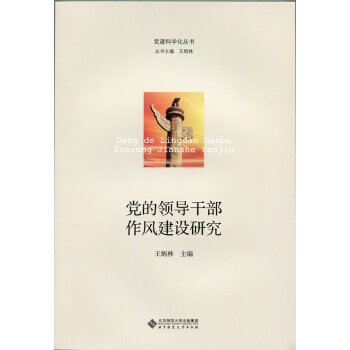

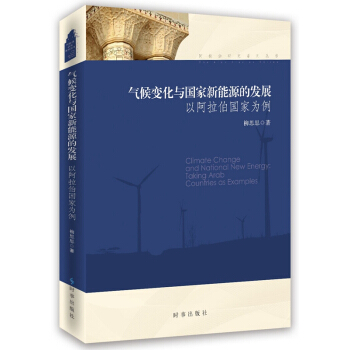

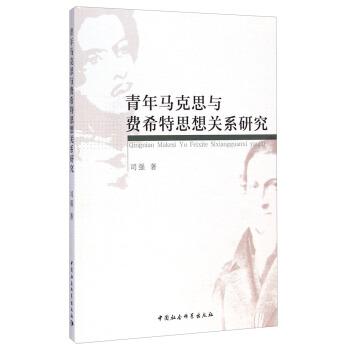
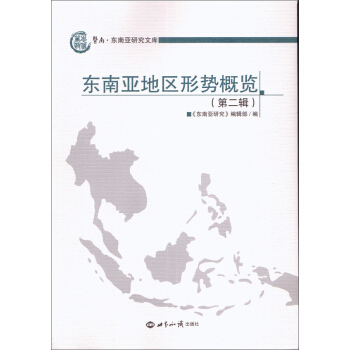
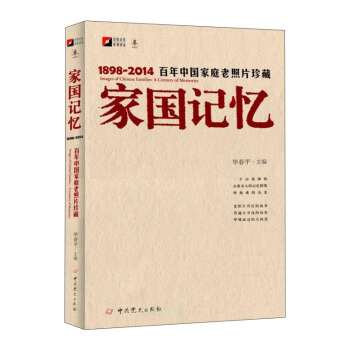

![中国社会科学院文库·马克思主义研究系列:邓小平理论的马克思主义解读 [Review of Deng XiaoPing Theory: In the Perspective of Marxism] pdf epub mobi 电子书 下载](https://pic.tinynews.org/11676535/552f0af7Ne9d17638.jpg)



![尼泊尔共产党(毛主义者)的历史、执政及其嬗变探究 [Research on History Covernance and Evolution of Communist Party of Nepal(Maoist)] pdf epub mobi 电子书 下载](https://pic.tinynews.org/11718679/5594ea80Ndae10ef7.jpg)

![中国应急管理报告(2014) [China Emergency Management Report 2014] pdf epub mobi 电子书 下载](https://pic.tinynews.org/11743243/55c02a75N1bad3a1d.jpg)
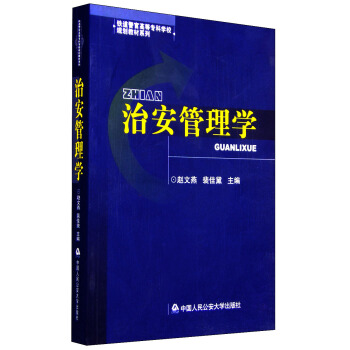
![中国政党制度发展史论 [The History of China Political Party System] pdf epub mobi 电子书 下载](https://pic.tinynews.org/11753737/5a8e56d1N28bc38ab.jpg)
![国外对华反补贴案例研究 [Case Study on Foreign Anti-Subsidies Against China] pdf epub mobi 电子书 下载](https://pic.tinynews.org/11757053/55ee2a33N6c5ad2ef.jpg)
